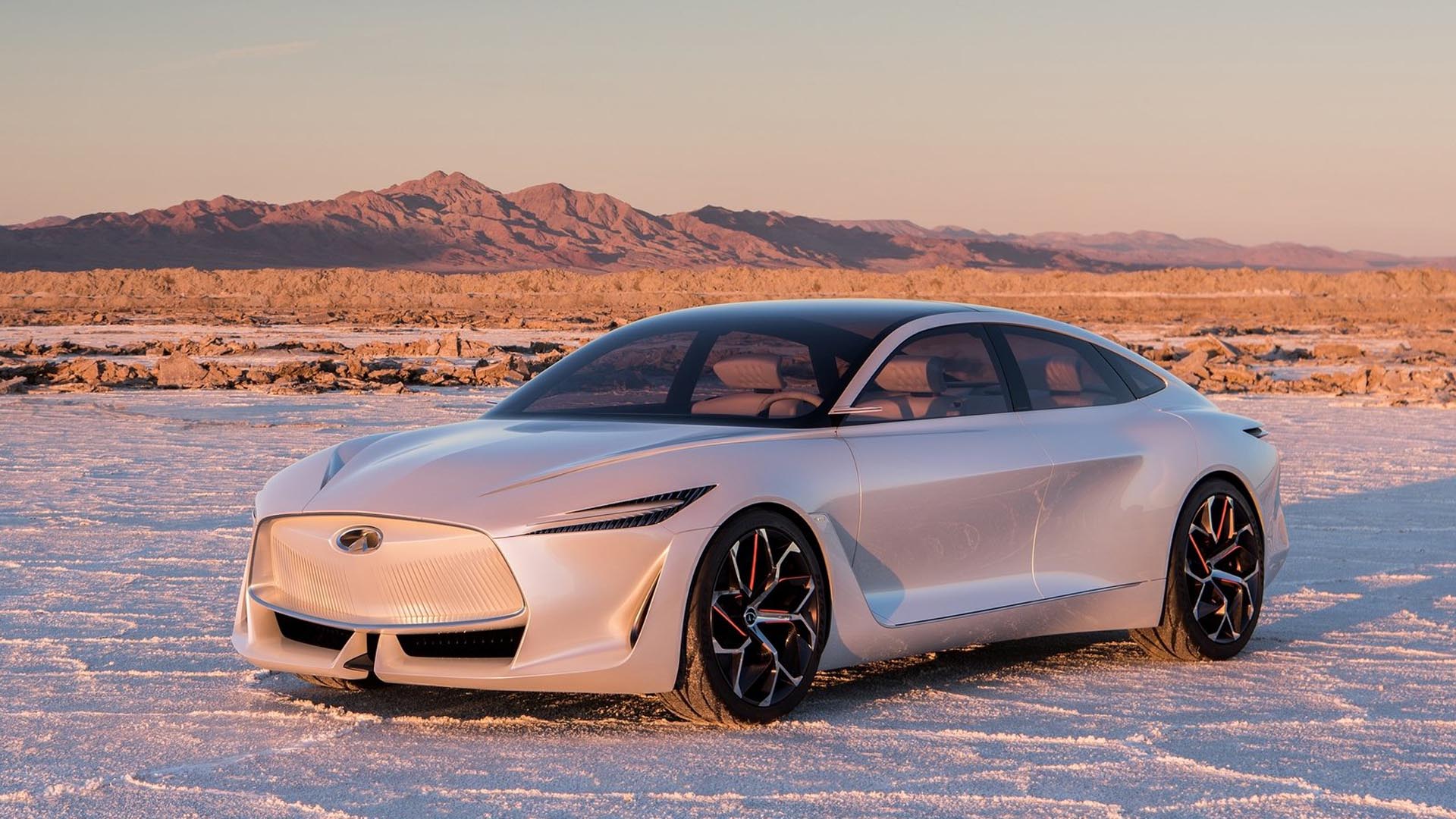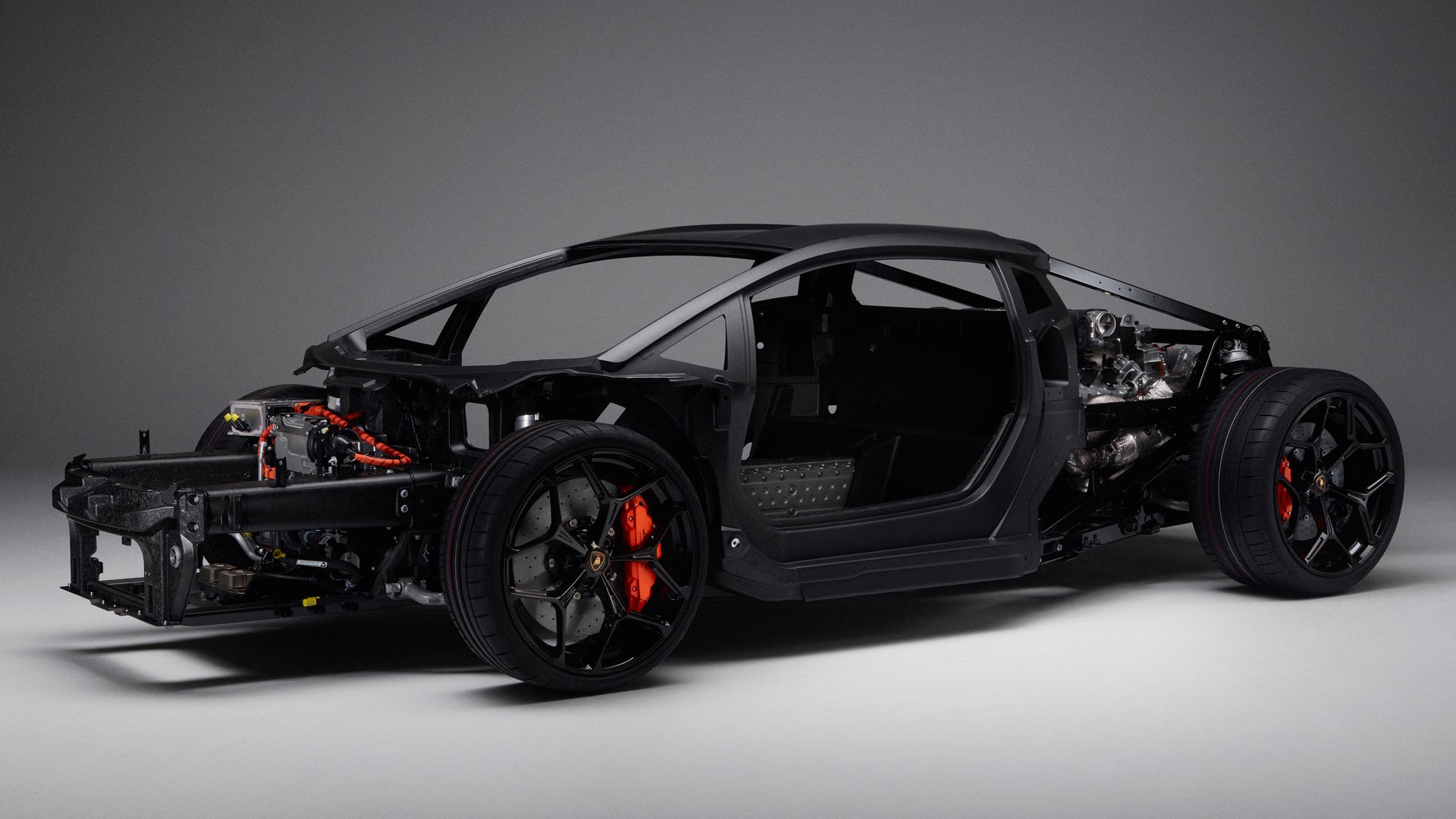Good morning and welcome back to Speed Lines, The Drive's morning roundup of what matters in the world of cars and transportation. We hope you are managing to stay safe and sane right now. Today we're talking about Infiniti, Tesla, America's subpar electric vehicle charging network and more.
Infiniti's Revamp, Again
In 1989, Toyota and Nissan both launched U.S. luxury divisions as part of the Japanese automakers' coming-of-age, and in an attempt to squeeze out higher profit margins amid voluntary export restrictions. One of those brands redefined what luxury and reliability were in the modern age, and forced every other automaker in that space to up their game. The other brand was Infiniti.
It's safe to say that aside from a few hits, like the original Q45 sedan and the G series sedans and coupes of the 2000s and 2010s, Infiniti has struggled to ever make a splash. In addition to spending most of its existence as a home for slightly nicer export-grade Nissans from Japan and Europe, it's suffered from the same problems as its parent company lately: outdated technology and an unclear brand identity and value proposition.
As recently as a year ago, it seemed Infiniti was poised to lead the charge (pun intended, I guess) as Nissan's electrified brand. But that was before everything went to hell. Now that Infiniti's in the midst of a huge cash crunch, an emergency executive shuffle and aggressive global cost-cutting. A planned tie-up with Mercedes-Benz parent Daimler has largely fizzled out as well.
Where does that leave Infiniti? A move downmarket, reports Automotive News: away from competing with Mercedes and BMW and more like "Nissan-plus." It means more platform sharing with existing Nissan cars—sort of like it was in the 2000s. From the story:
The story goes on to say that this is kind of a necessary move since Nissan has to make billions of dollars in cuts, so it can't afford to pump tons of money into rebuilding an already shaky luxury brand to fully compete with Lexus and the Germans. (It also says that former Nissan-Renault megaboss Carlos Ghosn "wanted Infiniti to account for 10 percent of the world's luxury market and rack up annual sales of 500,000 vehicles," which is ambitious and comical in equal measure.)
That story's worth a read in full, and it also notes that Nissan has work to do with its U.S. Infiniti dealers, who also aren't happy with the current regime's abysmal sales and may not love this new cut-rate direction. At least we're getting a new Z on the Nissan side.
What Do Tesla's Price Cuts Mean?
Last week—which feels like a year ago, given everything lately—Tesla announced price cuts to all its cars except the new Model Y. The aging Model X and Model S are being reduced by $5,000, and the Model 3 gets a $2,000 discount. As we noted in our story on the matter, Tesla's trying to drum up sales after its California factory shut down during the pandemic (and after CEO Elon Musk ordered everyone back to work early) but it lacks an in-house finance arm to offer zero-percent deals like most automakers.
The Verge has some additional thoughts on the situation, distilling the price cuts to five factors:
The last one is especially important, because no automaker is more beholden to quarterly ups-and-downs than Tesla and its often-volatile stock price. Though it came into 2020 in much better shape than some legacy competitors, it now has a lot of work to do to catch up with projected goals.
One thing I wonder about is the future of the Model S and Model X entirely. They're both older, expensive and outpaced in attention by the newer Model 3 and Model Y. I'm sure they're due for eventual heavy updates, but I'm curious if an outright replacement is in the cards.
Rural EV Charging? Not Likely
Finally, on the subject of electric vehicles, let's talk about charging. I still maintain Tesla deserves infinite credit for stepping up to build a propriety charging network as most competitors resorted to half-hearted partnerships or punted to municipalities and employers. While U.S. road-tripping in a Tesla is no longer anything novel, that's far from the case for other automakers.
No matter which automaker we're talking about, however, there still exist significant gaps in charging—especially in rural areas, as this Bloomberg story points out. Basically, charging stations can only make money right now when they're extremely busy. That may change with EV adoption, but there's your chicken-and-egg problem.
Here's a glimpse at the costs involved:
Every automaker is aiming for a huge EV push in the next few years. They all should have aggressive plans for how they're going to clear that hurdle.
On Our Radar
Consumer Spending Fell a Record 13.6% in April (WSJ)
Hyundai Motor's May sales fall sharply year-on-year on COVID-19 impact (Reuters)
Mexico scrambles to meet U.S. need (Automotive News)
Read These To Seem Smart And Interesting
The coronavirus is losing its potency in Italy and 'clinically no longer exists,' according to Italian doctors (Business Insider)
The Pandemic Has Exposed the Haves and Have-Nots of Journalism (Vanity Fair)
Dry Quarantine Unleashes Home Brew Amateurs, Exploding Pineapples (WSJ)
Black Journalists Are Exhausted (NY Times)
Your Turn
What should Nissan do with Infiniti? It seems like time to finally call it a day with that brand, is what I think. I don't see how "Nissan-plus" is going to make a dent in the market the way executives seem to think it will.









